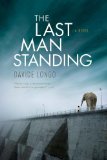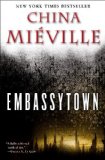Summary | Excerpt | Reviews | Read-Alikes | Genres & Themes | Author Bio

With his first novel written in the present, Gibson carries his perceptions of technology, globalization, and terrorism into a new century. Suspenseful, wry, and elegantly written, this is his most ambitious and broadly appealing novel to date.
Cayce Pollard (pronounced "case") is a legend in the field of market research, paid handsomely to recognize cultural and social patterns that corporations can turn into cash. Google her and you find "coolhunter," and you may see it suggested that she is a "sensitive" of some kind, a dowser in the world of global marketing. The truth, according to her friends, is that her sensitivity is closer to allergy, a morbid and sometimes violent reactivity to the symbols of the marketplace. Hired by Blue Ant, the world's hippest ad agency, for the sort of high-corporate re-branding she's known for, a more intriguing project emerges when the head of the firm asks her to determine who's producing a mysterious series of video fragments that have gripped the imaginations of people around the world. The source of this footage, carefully concealed, has so far proven untraceable.
For Cayce's worryingly brilliant employer, the footage is the most effective piece of guerilla marketing ever devised. For Cayce herself, the footage has a powerful emotional resonance as she attempts to come to terms with the apparent death of her father — a former U.S. security expert with ties to the intelligence community — in the collapse of the World Trade Center. But what if the sense of nascent meaning that she and others perceive in the footage is only an illusion of meaningfulness — in other words, faulty pattern recognition?
As Cayce begins her hunt for the mysterious "maker", she enlists the help of an odd array of characters, including a young Polish sculptor who works in primitive personal computers , an alcoholic ex-NSA guru hidden away in a rusting house-trailer in the British countryside, an attractive Chinese-American hacker-entrepreneur whose loyalty she questions, and her fellow footage-enthusiast Parkaboy, whom she's come to know (but only, so far, virtually) on a web site devoted to discussion of "the footage". When her rivalry with a fellow worker at the advertising agency takes an ominous turn, Cayce realizes that her investigation of the footage may be not only the most intellectually and emotionally demanding challenge she's yet faced, but dangerous as well. Her borrowed apartment in London is broken into, her laptop is hacked, and she soon learns that her therapist's notes have been stolen in New York.
No longer sure who she can trust, she finds herself flying to Tokyo, where a lovesick Japanese game-designer reveals a concealed code embedded in the footage. Back in London, the foul-mouthed former National Security Agency genius supplies another link in the chain, an e-mail address that leads to Moscow. Before the secrets of the footage's maker are finally revealed, Cayce will be drugged, imprisoned, and pursued. She will also, from unexpected quarters, receive the fullest picture yet of her father's last day in New York, in the shadow of the falling Towers.
William Gibson is credited with having coined the term "cyberspace" and envisioned the Internet — and its effects on daily life — before such phenomena existed. Many of his descriptions and metaphors have entered the culture as images of human relationships in the wired age. Now, with Pattern Recognition, his first novel of the here-and-now, Gibson carries his perceptions of technology, globalization, and terrorism into a new century that is now. Suspenseful, wry, and elegantly written, it is his most ambitious and broadly appealing novel to date.

If you liked Pattern Recognition, try these:

by Davide Longo
Published 2014
Davide Longo's Last Man Standing is a vivid description of one man's struggle in a post-apocalyptic world to protect his loved ones even as societal norms give way to barbarism and cruelty.

by China Mieville
Published 2012
With Embassytown Miéville has crafted an extraordinary novel that is not only a moving personal drama but a gripping adventure of alien contact and war.
It is a fact of life that any discourse...will always please if it is five minutes shorter than people expect
Click Here to find out who said this, as well as discovering other famous literary quotes!